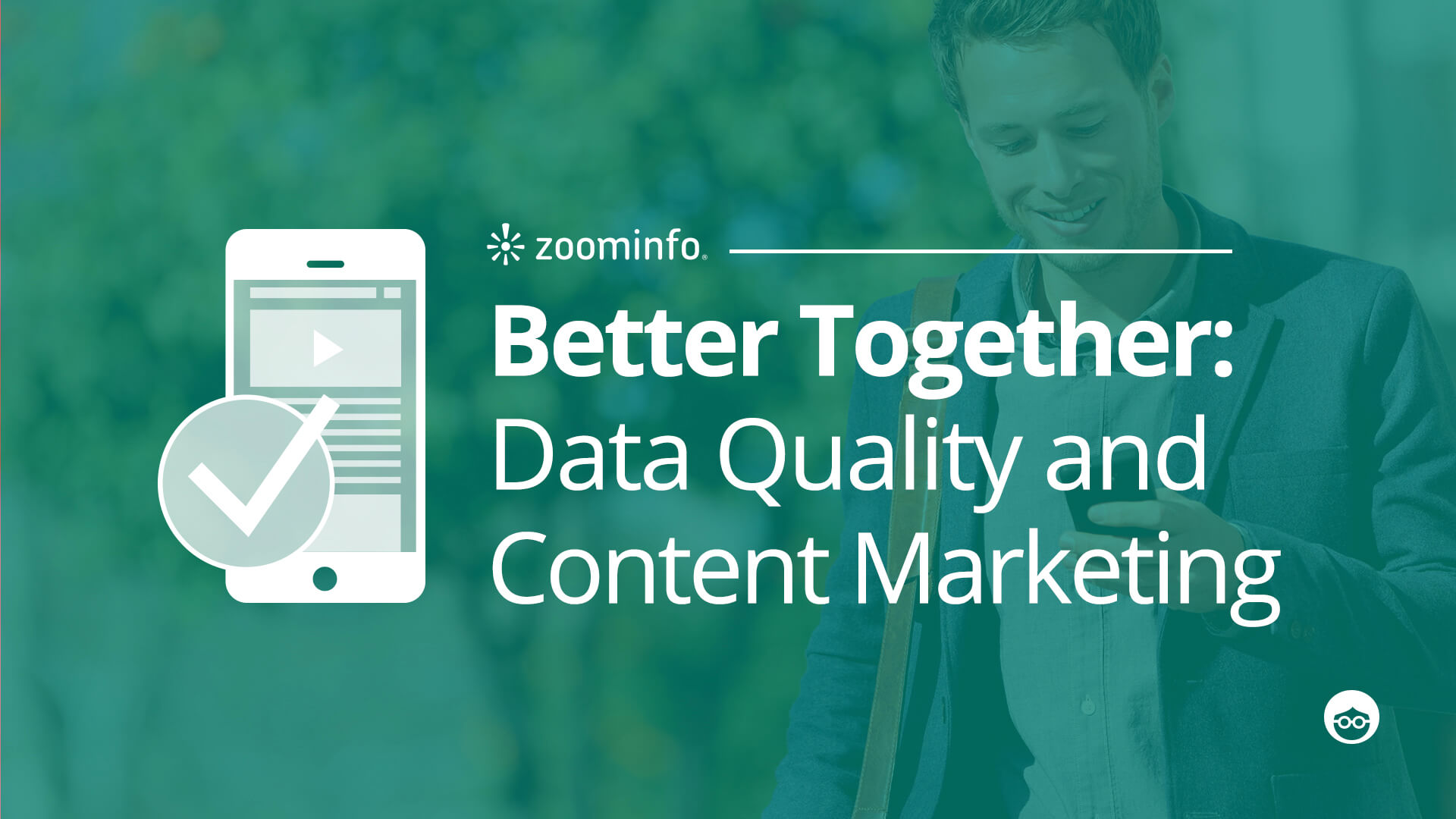Why Successful Content Marketing is Dependent on Data Quality

Successful marketers understand the value of providing tailor-made content for every step of the buyer’s journey. Yet, to reach the right audience at the right time, organizations must rely on one important factor: Data quality.
For those unfamiliar with the benefits of data quality, consider this statistic: Research reveals a strong organization can generate nearly 70% more revenue than an average organization purely based on the quality of its data.
In today’s blog post, we reveal the top three reasons why successful content marketing is dependent on data quality. Let’s get into it!
1. Data quality drives better decision-making
One of the top benefits of data quality is greater confidence in analytical systems. As B2B marketers strive to make strategic decisions around new and existing content, high-quality data is essential to glean actionable and accurate insights from analytics, metrics, and reporting.
In fact, best-in-class organizations are twice as likely to use data for predictive identification of marketing and sales advantages and opportunities. And what does good decision-making lead to? All signs point to increased revenue.
On the flip side, low-quality data puts organizations at risk for financial and reputational losses. The numbers are telling: IBM estimates bad data costs the U.S. economy around $3.1 trillion per year.
In short, if you want to make informed content marketing decisions that contribute to your company’s bottom line, improving data quality must be at the top of your to-do list.
2. Personalized content relies on data quality
Fact: Frost & Sullivan predicts customer experience will overtake price and product as the key brand differentiator by 2020. As organizations look to improve customer experience, they’re turning to personalized marketing content. At the heart of personalized content lies data.
Consider these statistics:
- Best-in-class organizations are 93% more likely to use data to personalize content or communications.
- Over 55% of marketers use a combination of data insights and customer feedback to make decisions on how to personalize content.
But with personalization comes a major challenge: The data fueling these efforts must be accurate and up-to-date. In fact, one study shows data quality is marketers’ number one obstacle to personalization.
Chances are, if you’ve worked in marketing for any length of time, you’re not surprised. B2B organizations face a high volume of prospect data coming from disparate systems and channels: CRMs, marketing automation platforms, social media platforms, and so on. Not to mention an increasing number of data types, including demographic data, technographic data, and behavioral data.
The key to achieving highly-personalized content marketing comes down to one thing: A holistic view of the customer. And achieving that level of detail requires high-quality data.
3. Bad data leads to bad marketing outcomes
As marketers look to create content that captures and engages their target audience, bad data often stands in the way of good results.
Consider this example: Say you craft an email marketing campaign to promote a new e-book. The problem is, half of your contact database is riddled with outdated or irrelevant contact information. The results: A dismal open rate, more unsubscribes, and lower quality leads.
As it stands, businesses have miles to go to improve data quality. In fact, U.S. organizations believe 33% of their customer and prospect data is inaccurate in some way. For the sake of successful content marketing, it’s time to lower this number. Marketers must take every measure to ensure a clean contact database and keep data in tip-top shape.
Three Ways to Improve Marketing Data Quality
The benefits of high-quality data are clear. In fact, B2B research firm SiriusDecisions estimates organizations with an early-phase data strategy can expect a roughly 25% uplift in conversion rates between the inquiry and marketing qualified lead stages. That said, here are our top three tips to improve your own data quality:
#1 Validate contact data as it is collected: According to an Ascend2 survey of 250 marketing influencers around the world, validating contact data as it is collected is the most effective way to improve marketing data quality.
#2 Assign data quality responsibility: The same study shows the second most effective method of data quality control is to assign a particular person or employee the responsibility. Therefore, we recommend you hire or assign a central data owner, as well as a team of data professionals, to manage data quality. Roles to assign include: Chief data officer, program manager, project leader, organization change agent, business analyst, data analyst, and data steward.
#3 Integrate sales and marketing data: Integrating sales and marketing data is the third most effective tactic to improve marketing data quality. With greater sales and marketing alignment, both teams can help deliver the right content at the right time. Thus, we suggest you integrate your standalone platforms to organize all data in a single location.
The Bottom Line
B2B marketers who stay ahead of data hygiene issues will realize better outcomes. As you proceed, remember high-quality data means different things to different businesses. Identify the purpose of your data, then create your own definition of quality based on your organization’s specific objectives and KPIs.
Final Thoughts about Data Quality and Content Marketing
And there you have it: the three top reasons why successful content marketing depends on data quality. We get it—improving data quality can be a daunting task, but making the effort can drive content marketing and business success.


